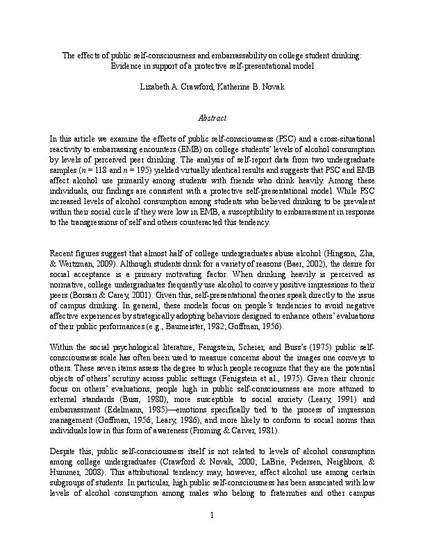
In this article we examine the effects of public self-consciousness (PSC) and a cross-situational reactivity to embarrassing encounters (EMB) on college students’ levels of alcohol consumption by levels of perceived peer drinking. The analysis of self-report data from two undergraduate samples (n = 118 and n = 195) yielded virtually identical results and suggests that PSC and EMB affect alcohol use primarily among students with friends who drink heavily. Among these individuals, our findings are consistent with a protective self-presentational model. While PSC increased levels of alcohol consumption among students who believed drinking to be prevalent within their social circle if they were low in EMB, a susceptibility to embarrassment in response to the transgressions of self and others counteracted this tendency.
This is an Accepted Manuscript of an article published by Taylor & Francis Group in the Journal of Social Psychology on 20/11/2012, available online: http://www.tandfonline.com/10.1080/00224545.2012.711381.
